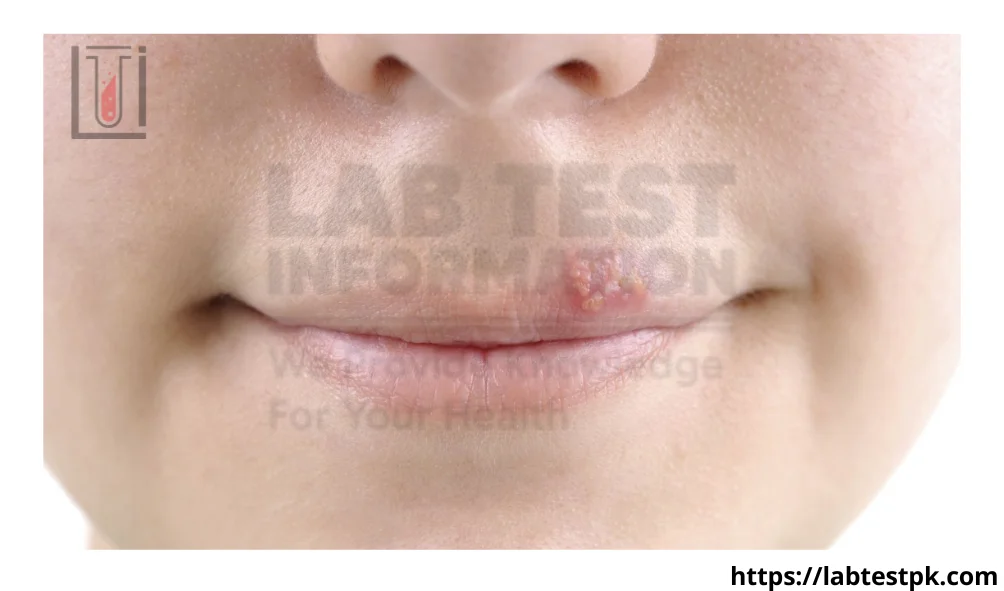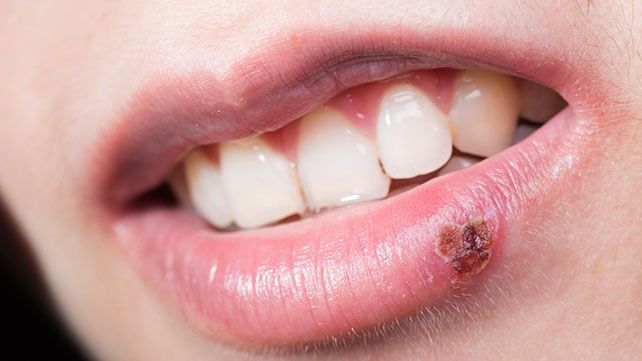Cold sores treatment
Cold sores treatment, Cold sores also known as fever blisters, are small, painful sores that typically appear on or around the lips. They are caused by the herpes simplex virus (HSV), primarily the HSV-1 strain.
What are the symptoms of cold sores?
The symptoms of cold sores can vary, but commonly include:
- Tingling or Itching Sensation: Before a cold sore appears, you may experience a tingling or itching sensation around the lips or on the face.
- Redness and Swelling: The affected area may become red and swollen.
- Formation of Small Blisters: Small, fluid-filled blisters may develop. These blisters are often grouped and can be painful.
- Ulceration and Crusting: The blisters may burst, leaving shallow open sores or ulcers. These sores can be painful and may ooze fluid. Eventually, they crust over as they begin to heal.
- Pain and Discomfort: Cold sores can be accompanied by pain or discomfort, especially when eating or talking.
- Fever and Fatigue: Some people may experience mild symptoms such as fever, headache, and fatigue during a cold-sore outbreak.
What causes cold sores?
Cold sores are primarily caused by the herpes simplex virus (HSV). There are two main types of the herpes simplex virus:
- HSV-1 (Herpes Simplex Virus Type 1): This is the most common cause of cold sores. It is typically associated with oral herpes and is often transmitted through oral-to-oral contact. HSV-1 can be contracted through activities such as kissing, sharing utensils, or coming into contact with the saliva of an infected person. It can also be transmitted to the genital area through oral-genital contact, leading to genital herpes.
- HSV-2 (Herpes Simplex Virus Type 2): While less common, HSV-2 can also cause cold sores. This type of herpes is primarily associated with genital herpes, but it can be transmitted to the oral area through oral-genital contact.
Once a person is infected with the herpes simplex virus, it remains in the body for life. The virus can enter a dormant (inactive) state and may not cause any symptoms for long periods. However, certain triggers can reactivate the virus, leading to the development of cold sores. Common triggers include:
- Stress: Emotional or physical stress can weaken the immune system, making it more susceptible to viral reactivation.
- Illness or Infections: Other illnesses, particularly those that compromise the immune system, can trigger a cold-sore outbreak.
- Sun Exposure: Prolonged exposure to ultraviolet (UV) light, such as sunlight, can trigger outbreaks in some individuals.
- Hormonal Changes: Hormonal fluctuations, especially in women, can be a trigger for cold sores. This includes menstruation, pregnancy, and hormonal medications.
- Trauma or Injury: Physical trauma to the lips or face can trigger the reactivation of the virus.
How are cold sores treated?
While there is no cure for the herpes simplex virus (HSV) that causes cold sores, there are various treatments available to alleviate symptoms, promote healing, and reduce the frequency of outbreaks. Here are common approaches to treat cold sores:
-
Antiviral Medications:
- Topical Creams or Ointments: Over-the-counter (OTC) or prescription antiviral creams, such as acyclovir, penciclovir, or docosanol, can be applied directly to the cold sores to help reduce symptoms and speed up healing.
- Oral Antiviral Medications: Prescription antiviral medications like acyclovir, valacyclovir, and famciclovir may be prescribed for more severe or recurrent outbreaks. These medications are taken orally and can help to suppress the virus and reduce the duration and severity of symptoms.
-
Pain Relief:
- Over-the-Counter Pain Relievers: Non-prescription pain relievers like acetaminophen or ibuprofen can help manage pain and reduce inflammation associated with cold sores.
-
Topical Treatments:
- Lip Balms with Sunscreen: Applying lip balms or creams containing sunscreen can help protect the lips from UV exposure, which may trigger outbreaks.
- Topical Anesthetics: Some over-the-counter creams or ointments containing numbing agents like benzocaine may provide temporary relief from pain and discomfort.
-
Home Remedies:
- Cool Compresses: Applying a cool, damp cloth to the affected area can help soothe pain and reduce swelling.
- Avoiding Triggers: Identifying and avoiding triggers, such as stress, excessive sunlight, or certain foods, may help prevent outbreaks.
-
Hygiene Practices:
- Good Hygiene: Wash hands thoroughly and avoid touching the cold sores to prevent the spread of the virus to other areas of the body or other people.
Can cold sores be prevented?
While it’s challenging to completely prevent the occurrence of cold sores, there are several strategies to help reduce the frequency of outbreaks and minimize the risk of transmission. Here are some preventive measures:
- Avoid Triggers:
- Identify and manage potential triggers, such as stress, illness, or exposure to sunlight. Taking steps to minimize these triggers can help prevent cold sore outbreaks.
- Maintain Good Hygiene:
- Wash hands regularly with soap and water, especially after touching the face or cold sores. This can help prevent the spread of the virus to other parts of the body or other people.
- Use Sun Protection:
- Apply lip balm or creams with sunscreen to the lips before prolonged sun exposure. Protecting the lips from UV radiation may help prevent cold sore outbreaks triggered by sunlight.
- Avoid Close Contact During Outbreaks:
- Refrain from close contact, such as kissing, with individuals who have active cold sores. This helps prevent the transmission of the virus to others.
- Practice Safe Sex:
- If you have genital herpes caused by HSV-2, use condoms during sexual activity to reduce the risk of transmitting the virus to your partner. Avoid sexual activity during active outbreaks.
- Consider Antiviral Medications:
- In consultation with a healthcare professional, individuals with frequent or severe outbreaks may consider taking antiviral medications regularly to suppress the virus and reduce the likelihood of outbreaks.
- Manage Stress:
- Practice stress-reduction techniques such as meditation, deep breathing, or yoga. Stress management may help prevent or minimize cold sore outbreaks.
- Boost Immune System:
- Maintain a healthy lifestyle with a balanced diet, regular exercise, and sufficient sleep. A strong immune system is better equipped to control the herpes simplex virus and may reduce the frequency of outbreaks.
It’s important to note that even with preventive measures, it’s not always possible to eliminate the risk of cold sores. If you have concerns about cold sores or are seeking prevention advice, consult with a healthcare professional for personalized guidance based on your specific situation.




[…] sponge-like bone growth along the shapes in the middle ear. Shapes become immobile preventing transmission of sound vibration into the ear, leading to conductive hearing […]
(Got rid of Herpes in 14 days)……………
[…] amounts. It plays crucial roles in various bodily functions, including the development of secondary sexual characteristics in females, regulation of the menstrual cycle, and maintenance of bone […]
[…] Severe headache […]
[…] of urine; the mid-stream clean catch urine sample is the most common type of sample collected. (The genital area is cleaned before collecting your urine.) Urine may also be collected using a catheter and, rarely, a needle is used to aspirate urine […]
[…] mucous membranes, minor breaks, or abrasions of the skin. IItreplicates locally, inducing an ulceration, before it migrates to the regional lymph nodes, where it rapidly spreads throughout the body. […]
[…] many warts disappear on their own without treatment, several options are available to spread up the process or to treat persistent or bothersome […]